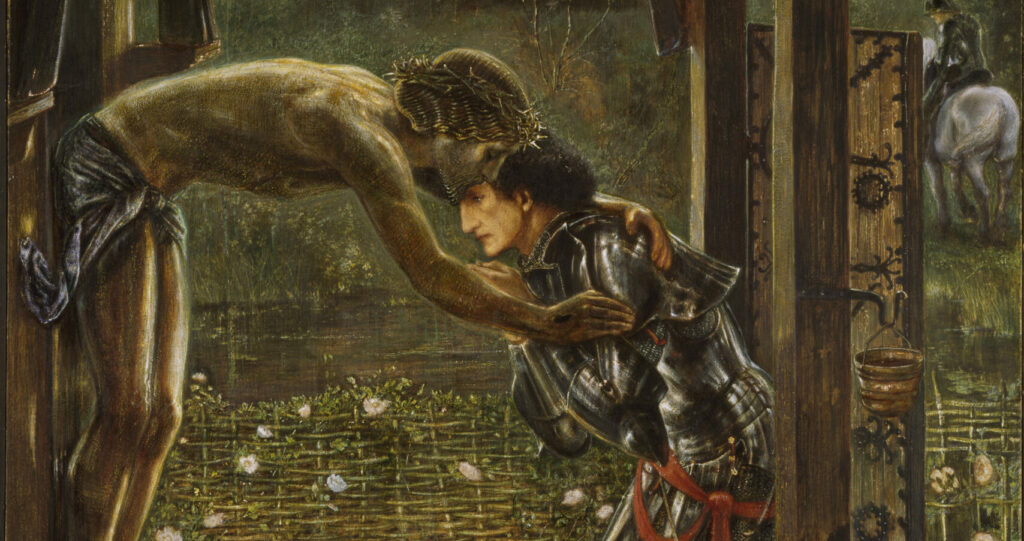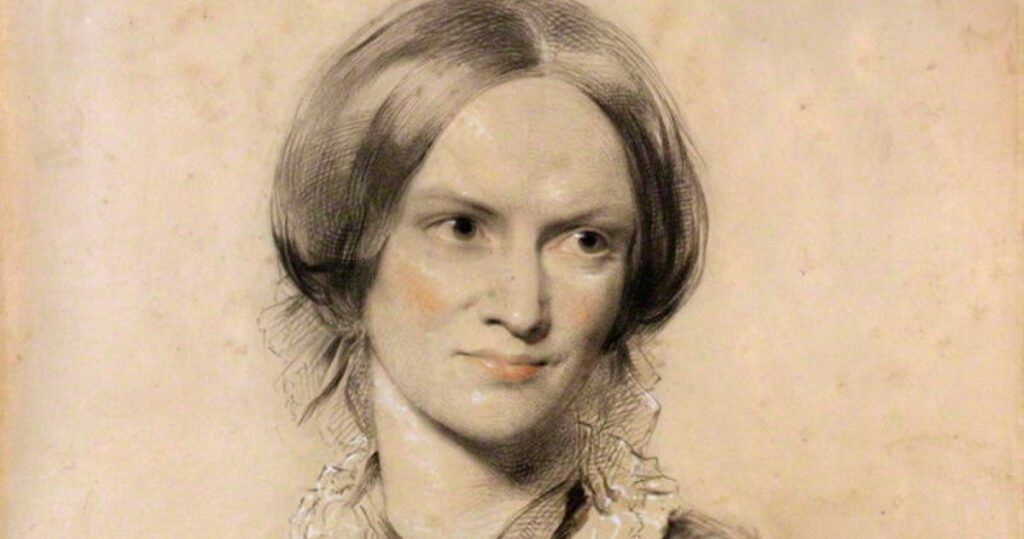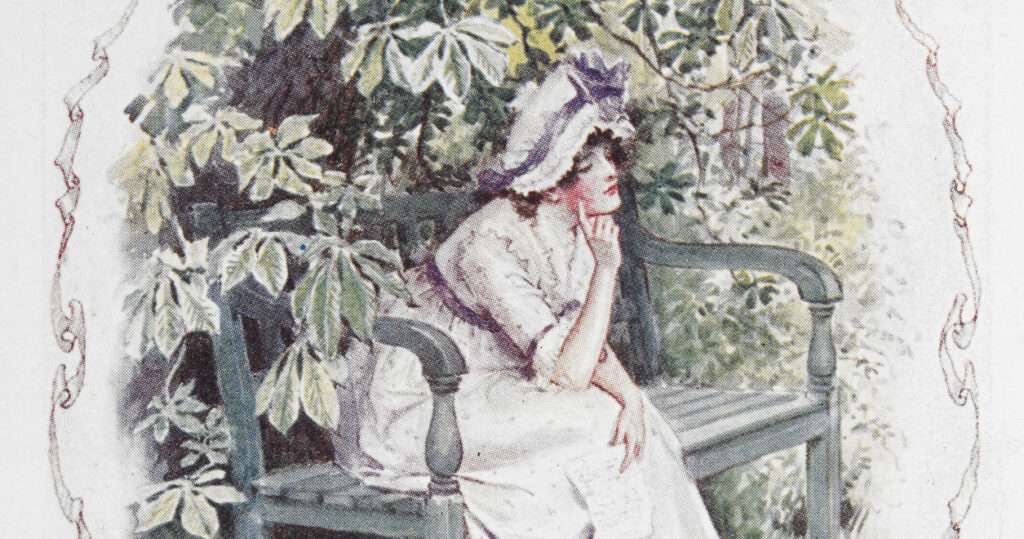A literary reflection by Liv Booth on Sigrid Undset's Kristin Lavransdatter. This is one installment of a monthly series providing reflections on works of literature from a Lutheran perspective.
“‘May God help me,’ said Erlend in a low voice. ‘I’ve been a foolish man.’” God hears the cry of the wanderer and rushes in.
Kristin Lavransdatter, Sigrid Undset’s absorbing tale of sin and family, feels like a memory. Though we did not grow up on a manor farm in medieval Norway, the love, honor and peace at Jørundgaard pierces our hearts with a pain like nostalgia. Sadly, we also recognize the shattering of that peace. Discontentment, envy, and shame poison that home as they do ours. And woe to him by whom this trouble comes.
By whom does it come? Most readers quickly find a character to blame, and Undset gives us plenty of juicy options. Among the corruptors of innocence is Erlend Nikulaussøn, Kristin’s seducer. He is a handsome, worldly-wise noble whose sins are obvious. It is particularly easy to brand him the villain, the source of all the trouble. But that’s not very Lutheran of us. Though undeniably a sinner, Erlend is actually a model Christian.
Undset uses Erlend to show us that God is acting here, in the fallen world, to rescue His wayward children. What is a Christian but a baptized sinner, living in the cycle of sin and forgiveness, aware of his utter dependance on God’s mercy? Erlend’s name means “wanderer,” and who among us is not a wanderer? It is not Erlend’s sin, but God’s inexorable grace that drives the narrative. God, crucified, is the victor. Erlend is not His enemy.
“Let your sins be strong, but let your trust in Christ be stronger”
Remember Luther’s words to Melanchthon. This is our familiar “sin boldly,” but hear the longer passage:
If you are a preacher of mercy, do not preach an imaginary but the true mercy. If the mercy is true, you must therefore bear the true, not an imaginary sin. God does not save those who are only imaginary sinners. Be a sinner, and let your sins be strong, but let your trust in Christ be stronger, and rejoice in Christ who is the victor over sin, death, and the world. We will commit sins while we are here, for this life is not a place where justice resides. We, however, says Peter (2 Peter 3:13) are looking forward to a new heaven and a new earth where justice will reign. It suffices that through God’s glory we have recognized the Lamb who takes away the sin of the world. No sin can separate us from Him, even if we were to kill or commit adultery thousands of times each day. Do you think such an exalted Lamb paid merely a small price with a meager sacrifice for our sins? Pray hard for you are quite a sinner. [1]
It is undeniable that Erlend is quite a sinner. But as Lutherans, we should shift our attention from what Erlend is doing to what God is doing as we read Kristin Lavransdatter. We believe that God uses suffering, even suffering caused by our own sin, to sanctify us. If Baptism does, as we believe and confess, cleanse us and claim us for God’s kingdom, then we must release the sinner Erlend to God’s care, and believe that even if his sins are strong, God’s devotion is stronger.
Lavrans, Kristin’s devout, mild and loving father, swung an axe into the skull of an ox when it gravely injured his little daughter Ulvhild. The giant beast fell under one blow. So when Erlend makes a penitential visit to the farm after the birth of Kristin’s child who was conceived out of wedlock after Erlend seduced her, we might expect Lavrans to reach for the axe again.
But although Undset reminds us of that moment as Erlend approaches (“The sound of an axe rang out cold and rhythmic in the stillness”), Lavrans meets him with grace. Lavrans knows a forgiven man when he sees one. Erlend has told his brother Gunnulf, a priest, that he is “going to Kristin’s father to ask him to demand whatever penances from me that he finds reasonable.” But he meets with a loving father-in-law who readily attends to the minor injuries Erlend has suffered during his trip. Ragnfrid, Kristin’s mother, brings fox fat to apply to his frozen cheeks. She calls him “son-in-law.” It is a prodigal son moment, to be sure.
Lavrans and Ragnfrid meet Erlend with humility, having both experienced God’s excessive mercy themselves. It is humbling how quickly peace is restored after Erlend shattered their family by seducing Kristin, and urging her to break her engagement to a good man. This is a man who has been forgiven much, not only by these devout people, but by the blood of Christ, which marked him first in a Baptism by water, and then in a baptism by fire.
Erlend’s cry for mercy
Erlend is branded. Months before this scene, while preparing for his wedding to Kristin, a bolt of lightning strikes Kristin’s childhood church and starts a blaze. The people of the town rush to help, and Erlend is among them, working shoulder to shoulder with Lavrans. As the men are tearing down flaming timbers, hoping to spare some of St. Olav’s, Erlend and Lavrans dive into the flaming structure to rescue the holy vessels and the crucifix. Erlend is joyful during this catastrophe, despite receiving a serious singeing. His hair and eyebrows are burned, and, in certain light ever after, the marks on his face are visible.
The mark of fire that lights up God’s holy church serves almost as a baptism by fire, pointing back to Erlend’s own Baptism. Erlend dies to his old life and begins a new one with Kristin. He is, or at least wants to be, a new man. He will, as Luther says, continue to sin, but the suffering caused by that sin, and by the fallen world around him, will only keep him on his knees, repenting and despairing of his own strength, wealth, cleverness and beauty for his salvation. “Jesus!” he cries in an agony of guilt as Gunnulf mercilessly lays out for Erlend the real nature of his past sins. He is not an imaginary sinner. Under the unbearable weight of guilt, what is released but a cry for mercy? The pressure of the sins themselves create prayer. Faith knows to whom we should cry.
So is there a sin Erlend can commit that is too great for God’s mercy? Erlend’s life over the next twenty years is a mix of tenderness toward Kristin and their growing family and neglectful restlessness. He is unfaithful. He is violent. Can I take Luther at his word and believe that the cross could cover a thousand such murders and adulteries? It is easier to judge a sinner like Erlend and be repulsed. Nothing can wash away those sins.
Nothing but a raging flood, like the one that sweeps through the valley late in the story. Begging for God’s deliverance from destruction, the priest carries the processional crucifix over the bridge, and the men of the town cry, “Kyrie, eleison!” In their number, soaked and singing, follows Erlend. Undset piles on the weight of sin, like the wreckage of a broken house rushing in the surge toward the bridge, and dares us to declare God’s mercy too small. Are we really to believe that God could love humanity that much? Could love Erlend that much? Could love me that much?
I am not an imaginary sinner. My sin is a heavy and ever-increasing weight that would crush me, but Christ, rich in mercy, stepped under it for me and lifted it off my shoulders. I am free. So is Erlend. So are you.
All quotations taken from Sigrid Undset, Kristin Lavransdatter, trans. Tiina Nunnally (New York: Penguin Books, 2005).
[1] Martin Luther, in a letter to Philip Melanchthon. Letter no. 99, 1 August 1521. Trans. Erika Bullman Flores. Dr. Martin Luther’s Saemmliche Schriften, ed. Dr. Johannes Georg Walch (St. Louis: Concordia Publishing House). Accessed projectwittenberg.org/pub/resources/text/wittenberg/luther/letsinsbe.txt.
Cover image: “The Merciful Knight,” by Edward Burne-Jones, 1863.






Delighted to find this. I have read the 3 volumes twice, in both the old and new editions. I find them endlessly fascinating.
Carol White
Honolulu
Living in the cycle of “sin and forgiveness” is in reality the state in which each of us spends our earthly sojourn. We vacillate between feelings of peace in the spirit to depression and feelings of unworthiness over the burden and stain of repeated sins. When I am in the spirit and infused with feelings of love and praise, and walking with God, my emotions take me to the mountains and heights of my Christian walk. But when my sins drags me into the valleys of despair, my soul feels guilt and regret, and shame, and the accuser’s words shout out, “Are you sure you are even saved at all? “
I think we often forget that our sanctification is a long process, and we will have to stumble many times, and fall from time to time, along this spiritual highway. Yet we need to be reminded that Our Lord made provision for us, after all, did Christ not make an acceptable sacrifice once for all sins? Certainly, we cannot grieve the spirit with impunity, and Luther’s hyperbolic words, “sin boldly” do not offer any solution. So then, we have to keep 1John1:9 in mind each day, keep going back to it, Christ assured us that we are His children from beginning to end. Soli Deo Gloria